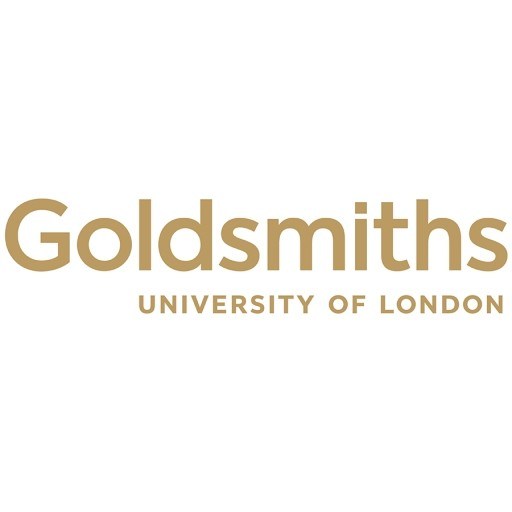Photos of university / #ucl
Cognitive and Decision Sciences at University College London offers an innovative interdisciplinary programme designed to equip students with a comprehensive understanding of how the mind processes information, makes decisions, and influences behaviour. This programme integrates principles from psychology, neuroscience, computer science, philosophy, and economics to explore the core mechanisms underpinning human cognition and the decision-making process. Students will investigate topics such as perception, attention, learning, memory, reasoning, problem-solving, and social cognition, gaining insights into both normal functioning and cognitive impairments.
Throughout the course, students engage with a variety of methodological approaches, including experimental psychology, computational modelling, neuroimaging techniques, and behavioural analysis. The curriculum emphasizes critical thinking and data analysis skills, preparing graduates to address complex problems across diverse fields such as artificial intelligence, clinical psychology, behavioural economics, and human-computer interaction. The programme’s structure combines compulsory core modules with a range of optional courses, allowing students to tailor their studies according to their interests and career aspirations.
Students benefit from UCL’s world-class facilities, expert faculty, and a vibrant academic community committed to pioneering research. Opportunities for practical experience, including laboratory work, research projects, and collaborations with industry partners, are integral aspects of the programme. Graduates of Cognitive and Decision Sciences are well-equipped to pursue careers in research, healthcare, technology development, consultancy, and beyond. The programme fosters a multidisciplinary perspective, encouraging innovative thinking and evidence-based approaches to understanding and improving decision processes in individuals and organizations. With a robust foundation in theory and applied practice, students graduate prepared to contribute meaningfully to advancements in cognitive science and decision-making fields.
Key topics include the nature of computational explanation; the general principles of cognition; the scope of rational choice explanation; probabilistic models of the mind; learning and memory; and applications to economics and business. The programme involves training in experimental design and methodology, building computational models and undertaking original research.
Students undertake modules to the value of 180 credits.
The programme consists of six core modules (90 credits), two optional modules (30 credits), and a research dissertation (60 credits).
Core modules
- Introduction to Cognitive Science
- Principles of Cognition
- Research Statistics
- Research Skills and Programming for Cognitive Science
- Judgement and Decision Making
- Knowledge, Learning and Inference
Optional modules
- Applied Decision-making
- Human Learning and Memory
- Cognitive Neuroscience
- Social Cognition: Research Methods
- The Brain in Action
- Neural Computation: Models of Brain Function
- Consumer Behaviour
- Understanding Individuals and Groups
- Social Neuroscience
- Social Cognition, Affect and Motivation
- Current Issues in Attitude Research
- Talent Management
- Business Psychology Seminars
- Interpretation of Forensic Evidence
- Consulting Psychology
- Designing and Analysing fMRI Experiments
Dissertation/report
All students undertake an independent research project which culminates in a dissertation of approximately 10,000–12,000 words.
Teaching and learning
The programme is delivered through a combination of lectures, seminars, class presentations, and practical, statistical, computational and experimental class work. Student performance is assessed through online tests, coursework, essays, practical experimental and computational mini-projects, and the dissertation.
Normally a minimum of an upper second-class Bachelor's degree from a UK university or an overseas qualification of an equivalent standard. A student peer group will often contain a broad mix of undergraduate degrees. Most common backgrounds include psychology, economics, philosophy, computer science, cognitive science, linguistics and law. An undergraduate degree not listed here should not, however, deter a potential applicant who can demonstrate an understanding of the focus of the course and enthusiasm for cognitive science and decision making, although they should be prepared for the mathematical component contained in the MSc-level Research Statistics module.
The MSc in Cognitive and Decision Sciences at University College London offers various financing options to support students throughout their studies. Tuition fees for international students are typically higher than for domestic students, with fees set annually and subject to change. UCL provides detailed information on tuition costs on its official website, enabling prospective students to plan accordingly. In addition to tuition fees, students should consider living expenses, including accommodation, food, transportation, study materials, and personal expenses, which vary depending on lifestyle and housing choices. UCL offers several scholarships and bursaries to both domestic and international students, aiming to reduce financial burdens. These include departmental scholarships, university-wide awards, and external funding opportunities that can be competitive and require application in advance of admission. Some funding sources are merit-based, considering academic achievement, while others may focus on financial need, country of origin, or specific fields of study. Students are encouraged to explore external scholarships from government programs, international organizations, and private foundations. UCL also provides guidance on student loans and financial aid schemes available in the UK, which may be accessible to eligible international students depending on their residency status and funding eligibility. Financial planning should include consideration of additional costs like health insurance, visa application fees, and registration charges, all of which can be significant. The university’s financial aid office offers support and advice throughout the application process and during the course of study. Many students also seek part-time employment opportunities permitted under student visa regulations to help cover living expenses. UCL’s commitment to supporting students financially ensures that motivated candidates can access high-quality education in cognitive and decision sciences regardless of their economic background. Overall, while the program offers several financial support options, prospective students should conduct thorough research and plan their finances well in advance to maximize available resources and minimize financial stress during their studies.
The Cognitive and Decision Sciences MSc at University College London (UCL) is a comprehensive postgraduate program designed to provide students with an interdisciplinary understanding of the scientific principles underlying human cognition, decision-making processes, and related areas of psychology, neuroscience, linguistics, and artificial intelligence. This program is suitable for students interested in exploring how the human mind perceives, processes, and responds to various stimuli, and how these processes influence decision-making in individual and social contexts. The curriculum combines theoretical foundations with practical applications, offering students the opportunity to engage in research projects, data analysis, and experimental methods. Core modules typically cover topics such as cognitive psychology, computational modeling, neuroscience, behavioral economics, and decision theory. Students are also encouraged to tailor their learning through elective modules that may include subjects like language processing, perception, and cognitive development. The program emphasizes developing critical thinking, experimental design skills, and quantitative analysis capabilities, preparing graduates for careers in research, academia, consultancy, or industry. UCL’s location in London offers advantageous access to nearby institutions and research centers specializing in psychology and neuroscience, fostering collaboration and networking opportunities. The MSc is often delivered through a combination of lectures, seminars, tutorials, and lab work, providing a balanced mix of theoretical knowledge and hands-on experience. Graduates of this program have gone on to pursue PhDs, research roles, or roles in policy-making, innovation, and technology sectors related to cognitive sciences. Admission requirements typically include a relevant undergraduate degree, such as psychology, neuroscience, linguistics, computer science, or related disciplines, along with proficiency in English language. The program is designed to be rigorous and challenging, encouraging students to develop a nuanced understanding of the complex interactions between cognition and decision processes, supported by the latest research and technological tools in the field.









